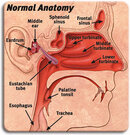amphibious21
New
Alright I'm sure we've all heard this one before.
I have been diving for around 4 years and in the beginning I never had any trouble with my ears. The next year I hopped in the water again and found that I was having an extreme amount of trouble equalizing. I'm not sure exactly what my problem is, I have tried various methods of equalizing and just being plain slow about descending but I still have a lot of pain even if a go extremely slow and equalize every few feet.
I'm also not sure why it started to happen a year after I started diving. My theory is that I grew in between, since I started diving at 12, and something happened that made it difficult.
I was wondering if anyone had any ideas or recommendations that might make it easier. Thanks in advance.
I have been diving for around 4 years and in the beginning I never had any trouble with my ears. The next year I hopped in the water again and found that I was having an extreme amount of trouble equalizing. I'm not sure exactly what my problem is, I have tried various methods of equalizing and just being plain slow about descending but I still have a lot of pain even if a go extremely slow and equalize every few feet.
I'm also not sure why it started to happen a year after I started diving. My theory is that I grew in between, since I started diving at 12, and something happened that made it difficult.
I was wondering if anyone had any ideas or recommendations that might make it easier. Thanks in advance.




